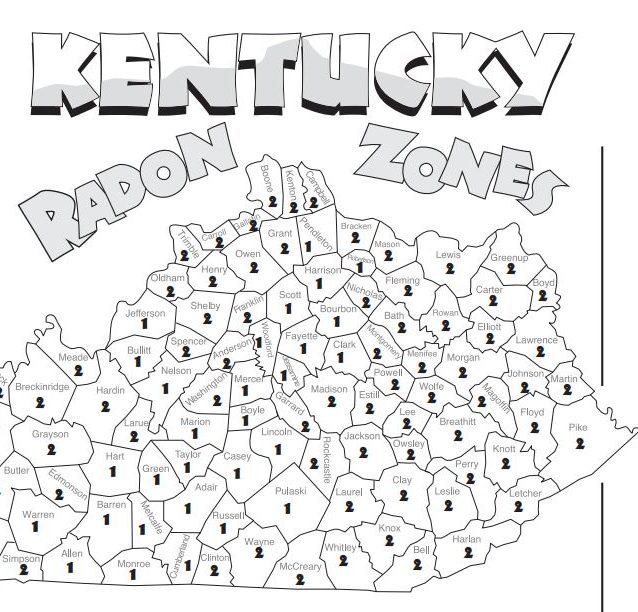Energy efficiency upgrades can help save your wallet, but they can also help save your health. For example, a recent study showed that 50 percent of the air breathed in a home comes in through the crawl space. In many cases, properly sealing and insulating your home will decrease volatile organic compounds in the air, increase the air quality and lessening allergy responses (think sneezing or watery eyes!).

2 = moderate chance
Image from UK College of Nursing
However, there are a few additional things to be aware of when thinking about air quality.
In this blog, we focus on radon – the second leading cause of lung cancer in the US.
Radon is a naturally occurring, radioactive gas (a byproduct of uranium decay in nearly all soils) that cannot be seen, smelled or tasted. It is dangerous because it attaches to dust or tobacco smoke and gets carried into the lungs (radon is even more dangerous for those who smoke and those who breathe secondhand smoke).
It typically moves up through the ground and into the air in your home or building through cracks and other holes in the foundation. Homes and buildings can trap the radon, allowing it to build up.
In Kentucky, each county has varying radon levels. Find your area’s risk for radon by visiting UK College of Nursing’s interactive map here.
If you find you live in an area that is high risk, or if you are interested in knowing the radon status of your home or place of work, you can receive a free short-term test kit in the mail from the Kentucky Cabinet for Health and Family Services. Additionally, MACED offers a digital radon detector through its energy equipment lending program (all of the equipment is available for free; equipment can be borrowed and returned through MACED’s offices in Berea, Hazard, or Paintsville, or shipped with costs paid for by the borrower).

Currently, the Environmental Protection Agency defines the radon action level as 4.0 pCi/L. This means that if you get a reading of 4.0 pCi/L or higher, you should consider making some changes. Test kits come with instructions, but plan to test in the lowest lived-in level of the home (or worked-in level of the business). For example, the basement if it is frequently used, otherwise the first floor.
UK College of Nursing has many other radon resources on their website, including continuing education and other resources for healthcare professionals.





